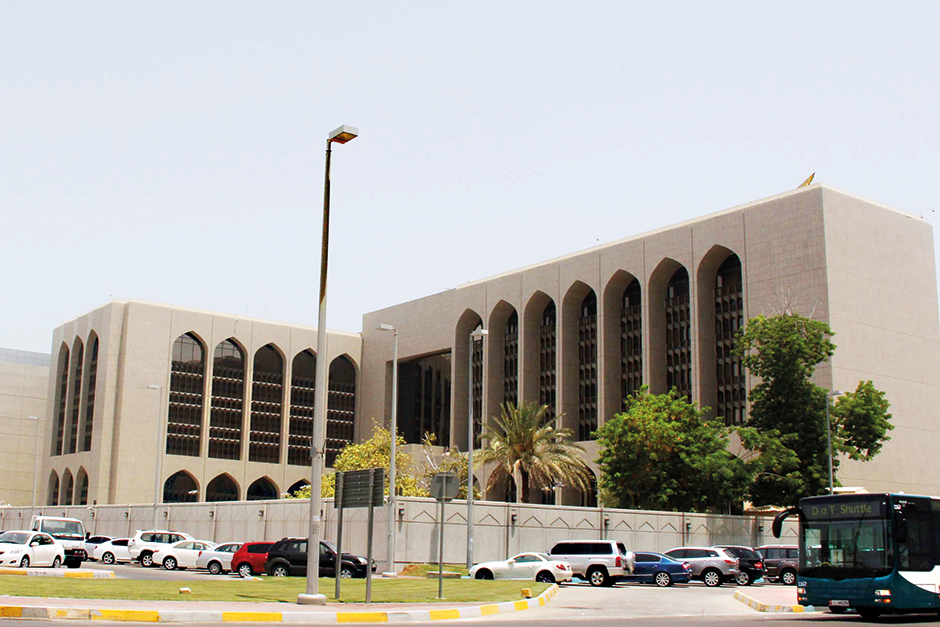
Dubai: A number of regulatory reliefs announced by the Central Bank of UAE (CBUAE) will soften the impact of coronavirus (COVID-19) on the economy and the banking sector, according to bankers and analysts.
Earlier this week, the CBUAE announced additional measures to support the economy during the coronavirus pandemic that increase the size of its Targeted Economic Support Scheme to Dh256 billion ($70 billion, or around 17 per cent of the country’s GDP) from Dh100 billion.
“The measures will support UAE banks’ liquidity and limit their likely material asset quality deterioration because of the coronavirus outbreak,” said Mik Kabeya, an analyst at rating agency Moody’s,
The new central bank measures include a Dh50 billion capital buffer relief, Dh50 billion zero-cost funding support, Dh95 billion liquidity buffer relief and Dh61 billion reduction-of-cash-reserves requirements for the banking sector.

The CBUAE continues to take appropriate and necessary actions to support the UAE economy in light of the COVID-19 pandemic. The additional measures announced will effectively relieve the pressure on financial institutions.
The latest central bank programme comes in the form of a 50 per cent reduction in reserves requirements for demand deposits - from 14 per cent to 7 per cent. This measure will inject liquidity of about Dh61 billion, which can be used to support banks’ lending and their liquidity management.
“The CBUAE continues to take appropriate and necessary actions to support the UAE economy in light of the COVID-19 pandemic. The additional measures announced will effectively relieve the pressure on financial institutions, allowing them to continue to carry out their crucial role as the backbone of the economy," said said Abdulhamid Saeed, Governor of the Central Bank of the UAE.

The CBUAE has further extended the duration of the Targeted Economic Support Scheme (TESS). Banks and finance companies participating in the TESS programme will be able to extend to their customers’ deferrals of principal and interest until December 31.

Relaxing liquidity buffers will, over the next few months, support banks’ liquidity and ease potential funding challenges, and if it results in increased lending to liquidity-constrained borrowers, will limit banks’ asset quality deterioration.
High liquidity buffers
Accordint to Moody’s the $70 billion scheme now equals 16 per cent of UAE banks’ domestic credit and 8 per cent of their total assets as of February 2020.
“Relaxing liquidity buffers will, over the next few months, support banks’ liquidity and ease potential funding challenges, and if it results in increased lending to liquidity-constrained borrowers, will limit banks’ asset quality deterioration,” said Kabeya.
Senior UAE bankers agree. “The central bank support has been substantial in terms of liquidity and capital. By increasing liquidity in the banking sector, it will provide further stability in these uncertain times, and allow banks to offer additional lending and support to critical sectors of the economy,” said AbdulAziz Al Ghurair, Chairman of Mashreq and Chairman of UAE Banks Federation (UBF).
Impact on other sectors
Moody’s expect the coronavirus to impact the UAE’s key non-oil sectors of tourism, transportation, trade and real estate.

The central bank support has been substantial in terms of liquidity and capital. By increasing liquidity in the banking sector, it will provide further stability in these uncertain times, and allow banks to offer additional lending and support to critical sectors of the economy.
“We expect borrowers in the tourism, transportation, trade and real estate sectors to be the most affected, and small and midsize enterprises (SMEs) to be particularly vulnerable to economic shocks,” said Kabeya.
According to Mood’s, at year-end 2019, credit to the wholesale and retail trade sector accounted for 9 per cent of systemwide lending; credit to the transport, storage and communication sectors accounted for 5 per cent; and credit to the construction and real estate sectors (including hospitality) accounted for 19 per cent.
Moody’s expect asset quality deterioration from the coronavirus outbreak will exacerbate existing asset quality deterioration derived from slowing global trade, low oil prices, a strong local currency and geopolitical tensions,
“Substantial ongoing restructuring of corporate debt will limit reported problem loans, but will increase potential problem-loan formation,” said Kabeya.
Focus on economy
Although UAE banks will face asset quality and profitability challenges in the near future, bankers said the banking system if fully geared to face the threat to the economy.
“Our prime target is to keep our economy in good health and support our customers amid the current challenges. Once this target is achieve, profits will automatically follow,” Al Ghurair.
As far as supporting customers, especially small and medium enterprises (SMEs), Al Ghurair said banks’ role is largely focused on making funding available and cheap. Apart from funding, businesses are facing a number of challenges which the government is aware of, and is offering a number of relief measures.








